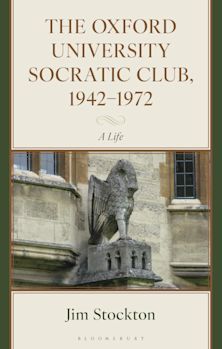- Home
- ACADEMIC
- History
- History - Other
- Uncivil Society
This product is usually dispatched within 3 days
- Delivery and returns info
-
Free US delivery on orders $35 or over
You must sign in to add this item to your wishlist. Please sign in or create an account
Description
Civil society is one of the most hotly debated topics in contemporary political theory. These debates often assume that a vibrant associational life between individual and state is essential for maintaining liberal democratic institutions. In Uncivil Society, Richard Boyd argues-through a careful reading of such seminal figures as Hobbes, Locke, Burke, Mill, Tocqueville, and Oakeshott-that contemporary theorists have not only tended to ignore the question of which sorts of groups ought to count as “civil society” but they have also unduly discounted the ambivalence of violent and illiberal groups in a liberal democracy. Boyd seeks to correct this conceptual confusion by offering us a better moral taxonomy of the virtue of civility.
Table of Contents
2 Chapter One: Thomas Hobbes and the Perils of Pluralism
3 Chapter Two: John Locke, Toleration, and Sectarianism
4 Chapter Three: Reappraising the Scottish Moralists and Civil Society
5 Chapter Four: Edmund Burke's Defense of Civil Society
6 Chapter Five: John Stuart Mill and the Modern Liberal Ambivalence to Groups
7 Chapter Six: Alexis de Tocqueville and the Perils of Pluralism Revisited
8 Chapter Seven: Michael Oakeshott and the Transformational (Im)possibilities of the Liberal State
9 Chapter Eight: F. A. Hayek and the Limits of Liberal Constitutionalism
10 Conclusion: Liberal Neutrality, Purposive Community, and the Logic of Contemporary Pluralism
Product details
| Published | Aug 18 2004 |
|---|---|
| Format | Paperback |
| Edition | 1st |
| Extent | 332 |
| ISBN | 9780739109090 |
| Imprint | Lexington Books |
| Dimensions | 9 x 7 inches |
| Series | Applications of Political Theory |
| Publisher | Bloomsbury Publishing |
About the contributors
Reviews
-
In his book, Richard Boyd offers a thoughtful reappraisal of the relation between the idea of civil society and the tradition of liberal political thought. He questions the view held by many contemporary political theorists that the development of civil society, understood as the realm of what Tocqueville called "voluntary associations" mediating between the individual and the state, is a necessary condition for the maintenance of liberal democracy. Against this position, Boyd argues that an earlier tradition of liberal thought was justifiably suspicious of the potential for subpolitical social groups-especially, but not limited to, intolerant religious sects-to undermine rather than support liberal institutions. In a series of well-argued chapters, he traces the trajectory of the connected ideas of civil society and social pluralism from initial suspicion to perhaps uncritical acceptance.
Perspectives on Politics
-
Richard Boyd has written an ambitious, intelligent, insightful, and challenging book . . . anyone interested in the history of liberalism, in the current debates over the lack of community, in the status or location of civil society will be both challenged and enlightened.
Christopher J. Berry, University of Glasgow


































